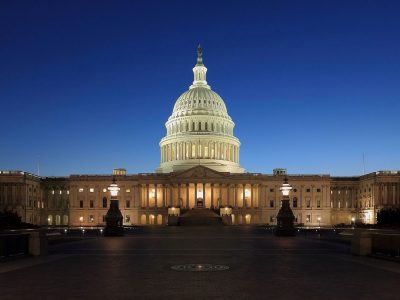CERCLA
The Ten Most Important U.S. Environmental Laws
Some of the choices may surprise you.
What are America’s most important environmental laws? Some are familiar, such as the federal air and water pollution laws, and the Endangered Species Act. But there are other people rarely hear about — even in environmental law courses — but have done a lot to protect the environment.
CONTINUE READINGThe U.S. Supreme Court’s Most Important 2020 Environmental Law Decisions
Clean Water Act, CERCLA, Native American Law and Trump’s Border Wall Lead the List
It’s become customary for critics and observers from many disciplines to publish a wide variety of lists at year’s end, nominating the most important or best movies, music, plays, etc. of the preceding year. Why not follow that tradition in the fields of environmental law and policy? With that objective in mind, I plan over …
Continue reading “The U.S. Supreme Court’s Most Important 2020 Environmental Law Decisions”
CONTINUE READING2020 in the Courts: A Preview
Some major new cases will be filed; older ones will result in major decisions.
There are going to be some significant environmental cases over the next year. In addition, some important new cases will be filed now or in the near future, which may have produced some interesting rulings. It will probably take more than a year, however, for some of the big new cases down the turnpike to …
Continue reading “2020 in the Courts: A Preview”
CONTINUE READINGThe Forgotten Environmental Legacy of Jimmy Carter
Carter saved millions of acres of wilderness, signed the Superfund law, and began the renewables revolution.
Many people today know Jimmy Carter as an ex-President who has strongly advocated for human rights. His Presidency is probably best remembered for the Iranian Hostage crisis. His post-presidential career was at least as notable as his time in the White House. Historians find his presidency flawed by micro-management and lack of rapport with the …
Continue reading “The Forgotten Environmental Legacy of Jimmy Carter”
CONTINUE READINGSuperfund and climate change
Over the last several years, it’s become fashionable in some circles to suggest that environmental law today reduces to climate change law. I’ve resisted that framing because I think it’s important to remember that “conventional” environmental problems still exist, still matter, and must be addressed by strategies beyond climate mitigation or adaptation. But the fact …
Continue reading “Superfund and climate change”
CONTINUE READINGHealth and Superfund
I belatedly happened across an interesting paper by Michael Greenstone. The Abstract summarizes the key finding: We are the first to examine the effect of Superfund cleanups on infant health rather than focusing on proximity to a site. We study singleton births to mothers residing within 5km of a Superfund site between 1989-2003 in five …
Continue reading “Health and Superfund”
CONTINUE READINGNew on Ecology Law Currents
Ecology Law Currents, the online companion to Ecology Law Quarterly, has two new articles: CERCLA’s Unrecoverable Natural Resource Damages: Injuries to Cultural Resources and Services, by Sarah Peterman, arguing that CERCLA does not permit recovery of damages for the loss of “cultural services” performed by injured natural resources, notwithstanding the Department of Interior’s contrary interpretation. …
Continue reading “New on Ecology Law Currents”
CONTINUE READINGThe Supreme Court and CERCLA
Following up on yesterday’s post, I thought it would be interesting to take a look at the trajectory of Supreme Court cases dealing with CERCLA liability. In the federal courts generally, CERCLA cases began slowly, with one in 1981 and 11 in 1982. The number of cases per year then built steadily until at peak …
Continue reading “The Supreme Court and CERCLA”
CONTINUE READINGThe (Somewhat Puzzling) Trajectory of CERCLA Litigation
The pattern of reported CERCLA opinions is puzzling — a steady rise until 1995, followed by a decline until 2002, followed by another rise through 2010. The explanation for the final period is unclear.
CONTINUE READINGHappy Birthday, CERCLA!
Thirty years ago today, Congress enacted the Comprehensive Environmental Response, Clean-up and Liability Act (a/k/a CERCLA or Superfund). CERCLA’s primary thrust is to create liability for cleanup of leaking waste disposal sites. The statute was Congress’s response to a number of high profile incidents, including the Love Canal debacle, that increased public awareness of the …
Continue reading “Happy Birthday, CERCLA!”
CONTINUE READING





